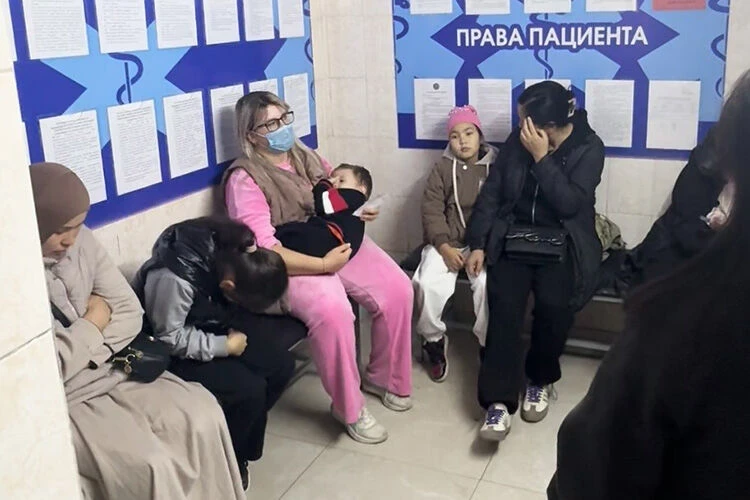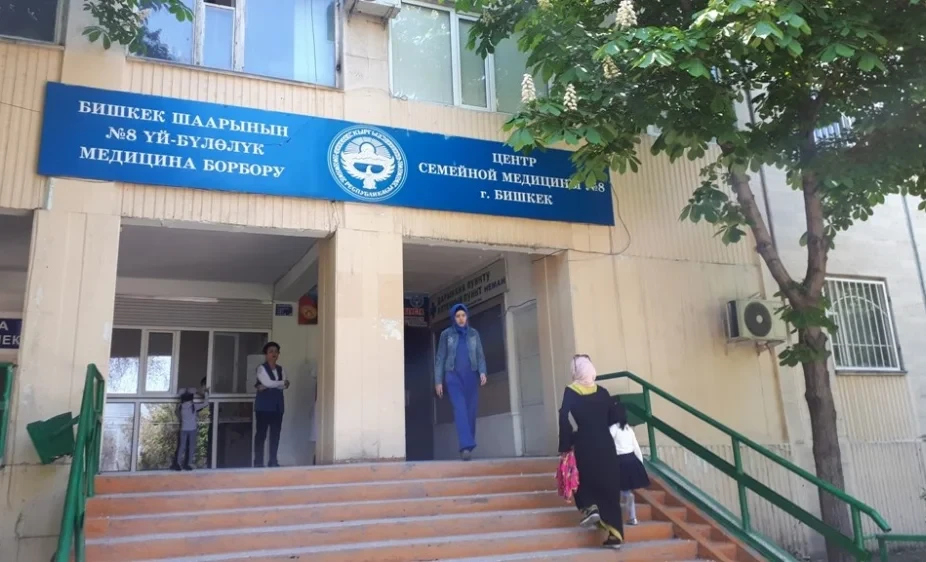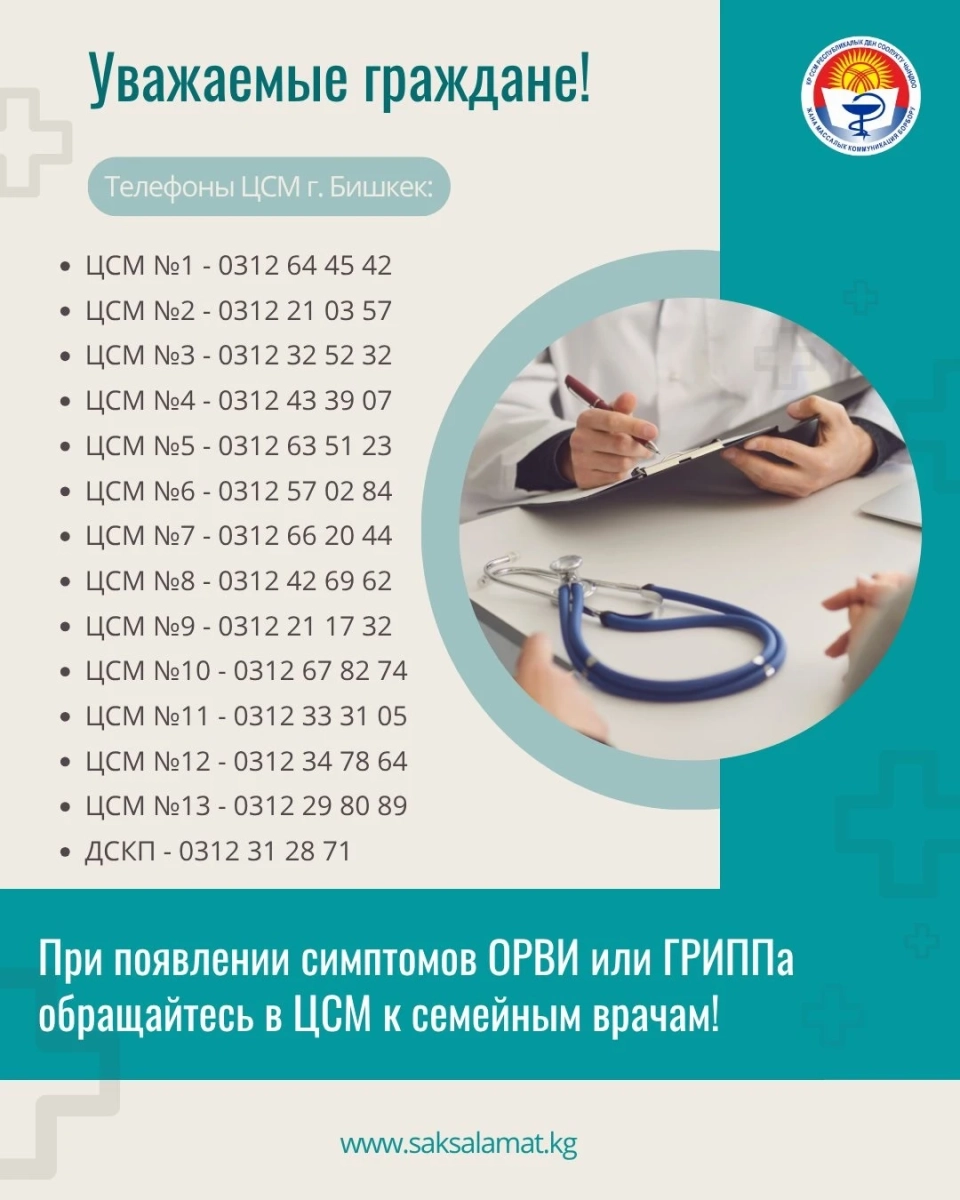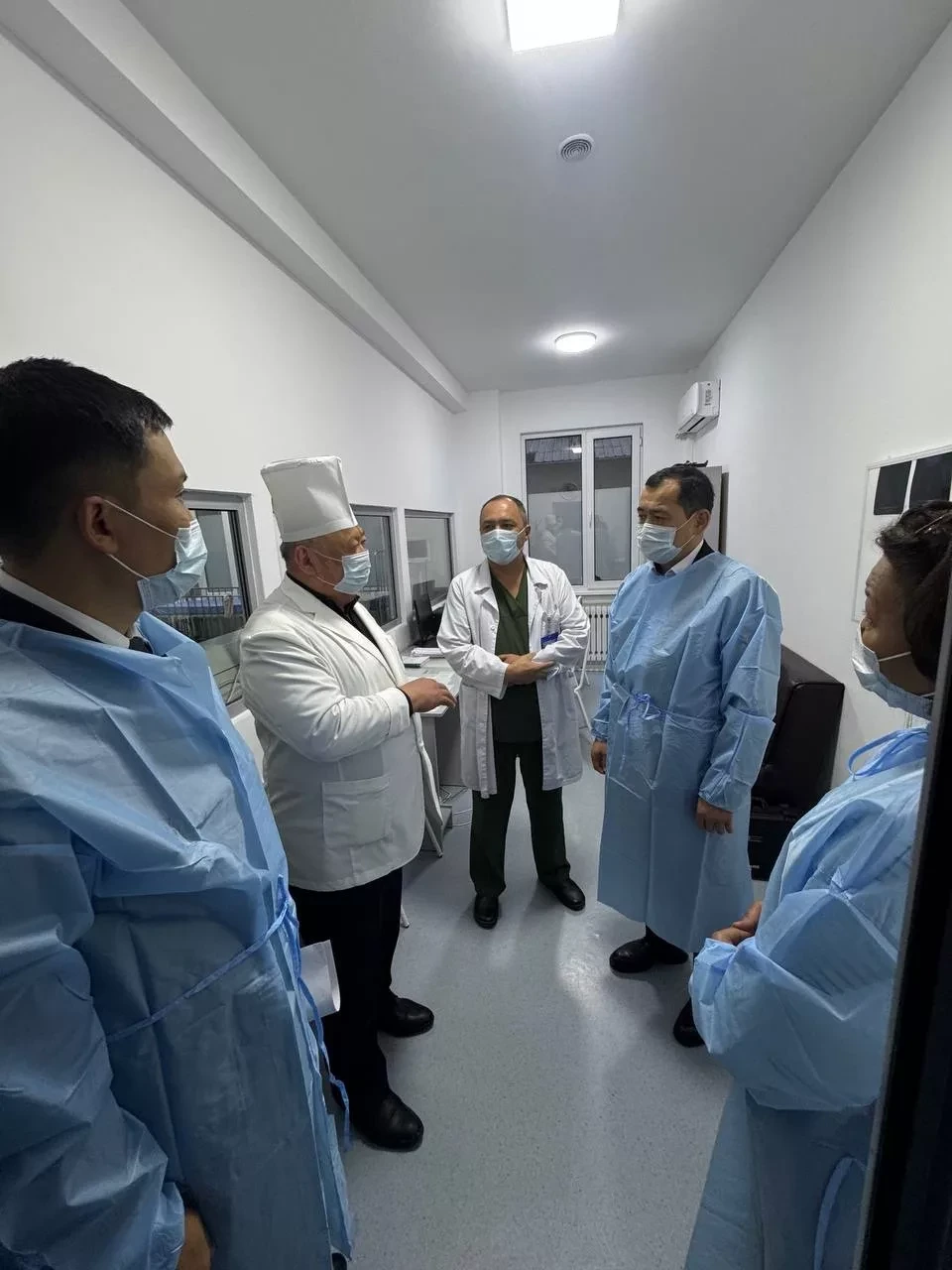“We are short on doctors; some colleagues are ill or in training, but we cannot stop seeing patients,” she shares.
Although the reception was supposed to end at noon, at 2:00 PM, Zhanil continues to work as patients arrive with high fevers, coughs, and runny noses. Children also frequently experience seizures due to fever. By morning, she had already referred two patients for additional examination, who were diagnosed with pneumonia.
Overload of Doctors and Increase in Complications
Each doctor is currently seeing almost three times more patients than usual: instead of 12-14 people a day, their numbers reach 35-40. Due to the shortage of specialists, patients are forced to wait a long time for their turn. To serve everyone, doctors stay at work even after their shifts end.“We have no other choice. The flow of patients does not stop,” say the doctors in the capital.Doctors also express concern about the increase in complications. In recent weeks, the number of pneumonia cases has significantly risen, and severely ill patients have to be referred to hospitals, while others are monitored on an outpatient basis.





